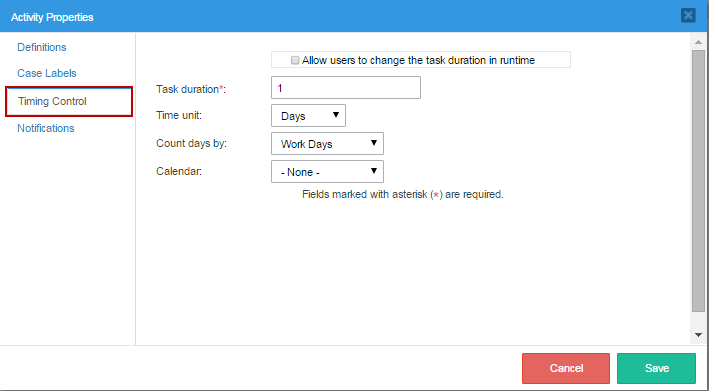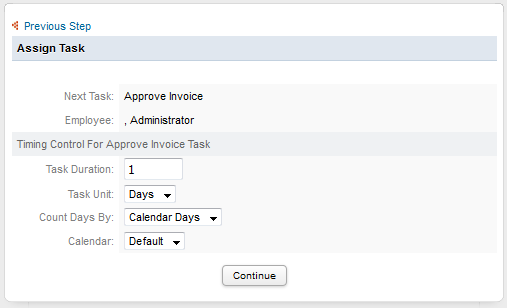By shailoz - Mon Apr 02, 2018 11:33 pm
- Mon Apr 02, 2018 11:33 pm
#813880
Hi Everyone,
I would like to set the due date for the next task based on a date entered by the user in a Dynaform. The due date must take into consideration the current calendar associated with the task.
For example, the user enters an initial date of 01-Apr-2018 in Step 1. The due date of step 2 must take into account the calendar associated with Step 1 and apply the correct due date:
The timing control of Step 1 is set up as follows:
Task Duration: 7 days
Count Days by: Work Days
Calendar: Work Days showing public holidays
Step 1 may be executed on 01-Apr-2018 or some time later. The due date of task 2 must reflect the correct date from the initial date.
Is this possible with PM3.2?
Thanks
I would like to set the due date for the next task based on a date entered by the user in a Dynaform. The due date must take into consideration the current calendar associated with the task.
For example, the user enters an initial date of 01-Apr-2018 in Step 1. The due date of step 2 must take into account the calendar associated with Step 1 and apply the correct due date:
The timing control of Step 1 is set up as follows:
Task Duration: 7 days
Count Days by: Work Days
Calendar: Work Days showing public holidays
Step 1 may be executed on 01-Apr-2018 or some time later. The due date of task 2 must reflect the correct date from the initial date.
Is this possible with PM3.2?
Thanks



 - By Peterparker87
- By Peterparker87